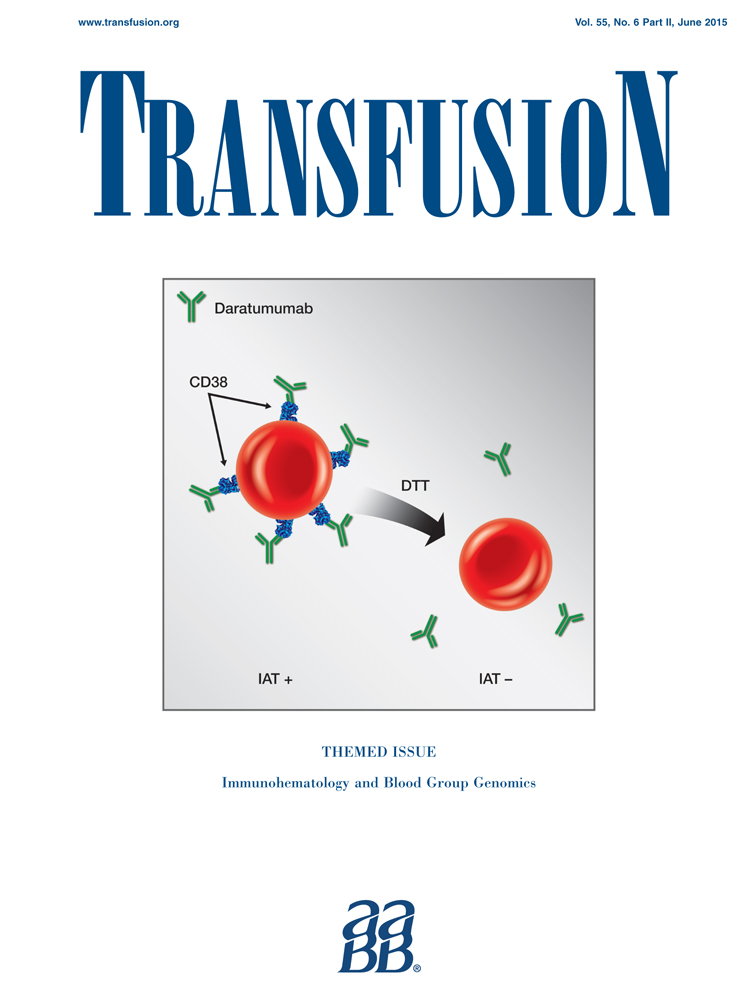Female sex of older patients is an independent risk factor for red blood cell alloimmunization after transfusion
Abstract
Background
More women than men are encountered with red blood cell (RBC) antibodies. It is not clear whether this difference is explained by more immunizing events in women or by a different acting immune system. To assess whether there is a difference in the posttransfusion RBC alloimmunization rate between women and men, a study on RBC alloimmunization during a 5-year period was conducted in patients with at least one antibody follow-up more than 14 days after transfusion.
Study design and methods
Data on transfusion and antibody follow-up characteristics in female and male transfusion recipients from the Leiden University Medical Center laboratory database were collected. Hazard ratios of alloimmunization, according to sex of the transfusion recipient, were estimated using Cox proportional hazards regression models taking possible confounders into account.
Results
From a total of 1699 women and 1969 men who were eligible, 4.2% of women and 3.4% of men (relative risk, 1.3; 95% confidence interval [CI], 0.9-1.8) developed posttransfusion antibodies. Adjustment for confounders resulted in a relative 80% higher risk in women older than 45 years of age.
Conclusion
Elder women beyond childbearing age have a higher risk of posttransfusion antibody formation compared to men.




